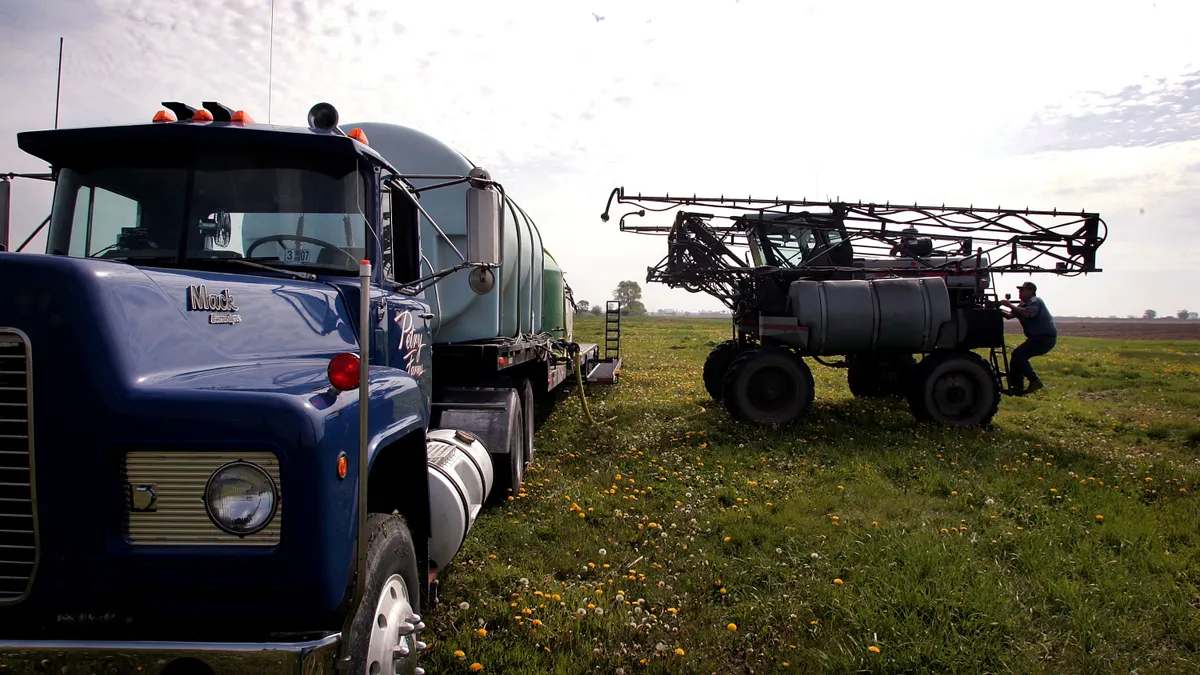The U.S. Environmental Protection Agency on Wednesday said farmers will be able to use some existing supplies of dicamba-based weedkillers after a restrictive court ruling sent producers scrambling to rethink their planting decisions.
Dicamba weedkillers for genetically modified cotton and soybeans can be used or sold if they "were already in the possession of growers or in the channels of trade and outside the control of pesticide companies," the agency ruled. Retailers can still sell products in their possession for the 2024 growing season until mid-June or July, depending on the state.
The decision comes a little less than a week after a federal court in Arizona revoked approval for three dicamba-based weedkillers, saying the EPA violated public comment rules and understated the risks of the herbicide. The weedkillers, produced by Bayer, Syngenta and BASF, are sprayed on dicamba-tolerant crops and require farmers to purchase genetically modified seeds.
Farm groups welcomed the decision, saying it provides certainty for the 2024 growing season. Many farmers had already purchased seeds or made planting decisions, and a lack of dicamba could have significantly pushed up production costs.
“We are grateful to EPA for hearing farmers’ and ranchers’ concerns and addressing them quickly to ensure we have access to the critical tools needed to protect our crops this season," American Farm Bureau Federation President Zippy Duvall, who had petitioned the agency for an existing stock order, said in a statement. "Without EPA stepping in, farmers and ranchers across the country were facing uncertainty and financial risk."
Dicamba was first allowed to be sprayed on cotton and soybean crops in 2016, and the U.S. Department of Agriculture estimated 43% of soybean acreage was planted with dicamba-tolerant seeds in 2018. Environmental groups have said the expanded use of dicamba has damaged surrounding croplands and natural habitats.
Bayer, BASF and Syngenta acknowledged the EPA ruling in separate statements, with BASF noting it continues to review its legal options.
“We welcome the EPA’s swift action," a Bayer spokesperson said in an email to Agriculture Dive. "Our top priority is that growers have the products and support they need to have a successful season.”











